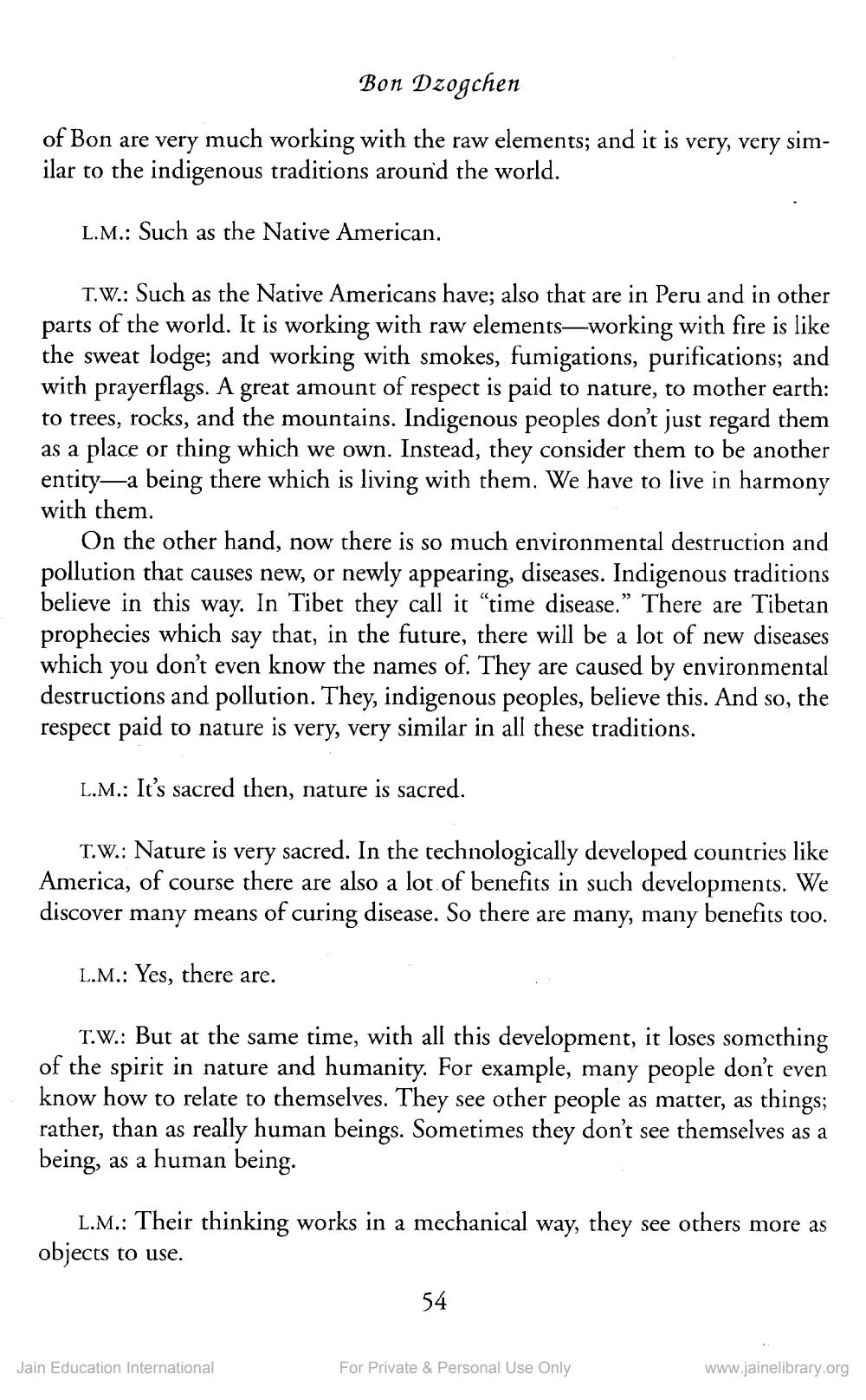________________
Bon Dzogchen
of Bon are very much working with the raw elements; and it is very, very similar to the indigenous traditions around the world.
L.M.: Such as the Native American.
T.W.: Such as the Native Americans have; also that are in Peru and in other parts of the world. It is working with raw elements—working with fire is like the sweat lodge; and working with smokes, fumigations, purifications; and with prayerflags. A great amount of respect is paid to nature, to mother earth: to trees, rocks, and the mountains. Indigenous peoples don't just regard them as a place or thing which we own. Instead, they consider them to be another entity—a being there which is living with them. We have to live in harmony with them.
On the other hand, now there is so much environmental destruction and pollution that causes new, or newly appearing, diseases. Indigenous traditions believe in this way. In Tibet they call it "time disease.” There are Tibetan prophecies which say that, in the future, there will be a lot of new diseases which you don't even know the names of. They are caused by environmental destructions and pollution. They, indigenous peoples, believe this. And so, the respect paid to nature is very, very similar in all these traditions.
L.M.: It's sacred then, nature is sacred.
T.W.: Nature is very sacred. In the technologically developed countries like America, of course there are also a lot of benefits in such developments. We discover many means of curing disease. So there are many, many benefits too.
L.M.: Yes, there are.
T.W.: But at the same time, with all this development, it loses something of the spirit in nature and humanity. For example, many people don't even know how to relate to themselves. They see other people as matter, as things; rather, than as really human beings. Sometimes they don't see themselves as a being, as a human being.
L.M.: Their thinking works in a mechanical way, they see others more as objects to use.
- 54
Jain Education International
For Private & Personal Use Only
www.jainelibrary.org




